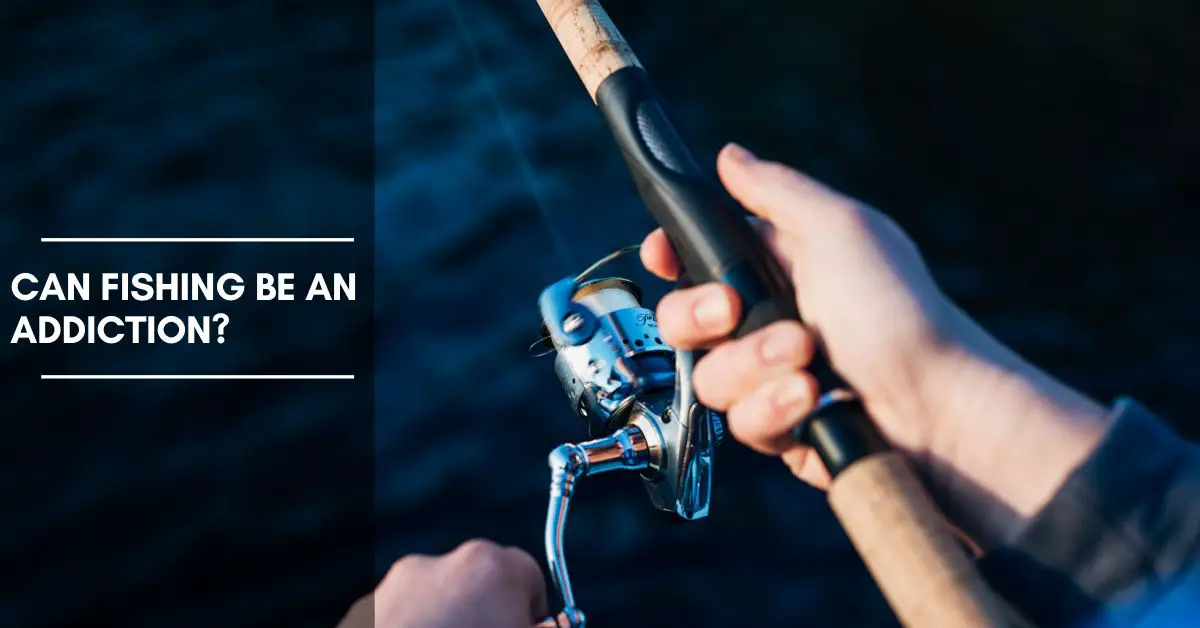Fishing has been a popular pastime for centuries, offering a way for people to unwind, connect with nature, and even socialize with friends and family. However, can it be possible that this seemingly innocent hobby becomes an addiction?
In this article, we’ll explore the potential for fishing to become an addictive behavior, discuss the science behind it, and offer some helpful tips for maintaining a healthy balance.
The short answer is yes, fishing can become an addiction for some individuals. As with any activity, it is possible for people to develop a dependency on the emotions and experiences associated with fishing.
So let’s dive in and learn more about the world of fishing addiction, its potential impact on people’s lives, and how to identify and address it when it becomes a problem.
The Allure of Fishing: Why It Can Be Addictive
Fishing can be an incredibly rewarding and enjoyable hobby for several reasons:
- The calming effect of nature: Being surrounded by water, greenery, and wildlife offers a peaceful escape from the hustle and bustle of daily life. This serene environment can be a significant draw for those who enjoy fishing and contribute to its addictive nature.
- The thrill of the catch: The anticipation and excitement of hooking a fish can be a powerful motivator, as people become eager to experience that adrenaline rush again and again.
- Social bonding: Fishing often involves spending time with friends or family, creating lasting memories, and fostering a sense of camaraderie.
The Science Behind Fishing Addiction
There are several factors that make fishing a potentially addictive activity:
- Dopamine and the reward system: Catching a fish triggers the release of dopamine, a neurotransmitter associated with pleasure and reward. This chemical reaction can make the experience of fishing highly enjoyable, leading individuals to crave that sensation repeatedly.
- Flow state: Fishing can induce a flow state, a psychological state in which a person becomes fully immersed and focused on an activity. This heightened sense of focus and enjoyment can make it difficult to resist the urge to fish.
When Does Fishing Become an Addiction?
As with any activity, it’s essential to recognize when fishing transitions from a healthy hobby to an addiction. Here are some signs to watch for:
- Prioritizing fishing over essential responsibilities, such as work or family commitments
- Experiencing withdrawal symptoms when unable to fish, such as irritability, anxiety, or restlessness
- Continuously increasing the amount of time spent fishing to achieve the desired emotional effect
The Positive Side of Fishing Addiction
While fishing addiction can have negative consequences, it’s important to acknowledge the potential benefits of this hobby:
- Health benefits: Fishing can improve cardiovascular health, build muscle strength, and promote mental well-being.
- Stress relief: Fishing can be a therapeutic way to relax and decompress, as the calming natural environment helps to alleviate stress and anxiety.
Finding Balance: Tips to Prevent Fishing Addiction
If you’re concerned about developing a fishing addiction, here are some tips to help you maintain a healthy balance:
- Setting boundaries: Establish limits on the time and money you devote to fishing, and stick to those boundaries.
- Diversifying hobbies: Pursue other interests and hobbies to avoid becoming overly fixated on fishing.
The Role of Fishing Competitions
Fishing competitions can play a significant role in fueling addiction:
- The competitive nature: The drive to win and outperform others can intensify the addictive qualities of fishing.
- The impact on addiction: Participating in fishing tournaments might further reinforce the dependency on fishing, especially for those who already show signs of addiction.
Fishing Addiction in Popular Culture
Fishing addiction is not a widely discussed topic in popular culture, but it has been featured in some documentaries and television programs that explore the lives of avid anglers and their families.
Seeking Help for Fishing Addiction
If you or someone you know is struggling with fishing addiction, it’s essential to seek help:
- Support groups: Joining a support group can provide a sense of community and understanding from others facing similar challenges.
- Professional help: Counseling or therapy can help individuals address the underlying issues that contribute to fishing addiction and develop healthier coping mechanisms.
Conclusion
In conclusion, fishing can indeed become an addiction for some individuals. While it offers numerous benefits, such as stress relief and social bonding, it’s crucial to recognize when fishing begins to negatively impact one’s life. By setting boundaries, diversifying hobbies, and seeking help when necessary, it’s possible to maintain a healthy balance and enjoy the many rewards of fishing.
FAQ
- Is fishing addiction a recognized mental health disorder?
While fishing addiction is not formally recognized as a mental health disorder, it can share similarities with behavioral addictions and negatively affect one’s life.
- Can I still enjoy fishing without becoming addicted?
Yes, many people enjoy fishing without developing an addiction. The key is to maintain a healthy balance and be aware of the potential risks.
- Are there any support groups specifically for fishing addiction?
While there may not be support groups specifically for fishing addiction, general addiction support groups or therapy can be helpful in addressing the issue.
- How can I help a loved one who may be struggling with fishing addiction?
Encourage open communication, offer support and understanding, and help them seek professional assistance if necessary.
- Are children at risk of developing a fishing addiction?
Children, like adults, can be susceptible to developing an addiction to fishing. It’s essential to monitor their involvement in the activity and ensure they maintain a balanced lifestyle.

